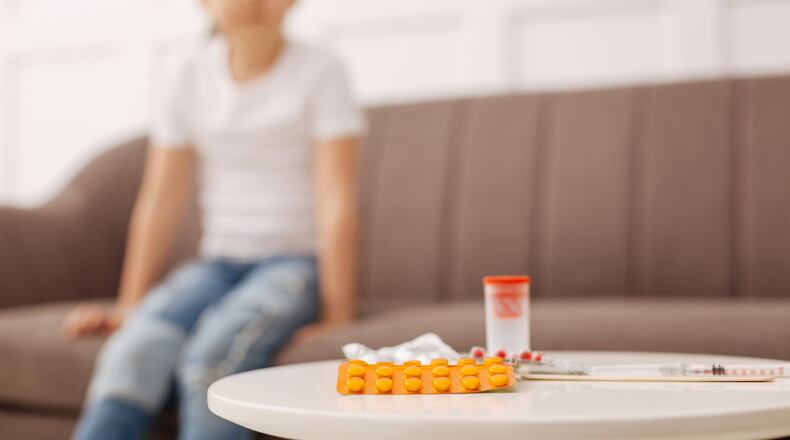National Poison Prevention Week just wrapped up, so the experts at Dayton Children’s want to end the week with just one more reminder for parents: Keep in mind that there are poisonous items located throughout our homes, from fertilizer and antifreeze to medicines to makeup.
“Parents need to be smart when it comes to exposing children to poisonous substances and take the necessary steps to create a safe environment,” says Jessica Saunders, director for the Center for Child Health and Wellness at Dayton Children’s. “Supervision is the very best way to help prevent kids from getting injured, but even the most vigilant parent can’t keep a child 100 percent safe at all times.”
So what can parents and caregivers do to keep potentially poisonous substances out of kids’ hands?
Dayton Children’s recommends these seven steps to help prevent accidental poisonings:
1. Create a checklist and review how medicines, cleaning products, and garden or automotive products are stored in your home or care center.
2. Learn and post the U.S. poison control center phone number — 800-222-1222 — near phones in case of an emergency.
3. If you have or care for an infant, toddler, or school-age child, keep all toxic agents in locked cabinets.
4. Never leave vitamin bottles, aspirin bottles, or other medications where a child could find them.
5. Don’t leave medicines or cosmetics in your purse or within a child’s reach.
6. Prevent poisonings in teens, and avoid the lethal combination of alcohol, firearms, toxic substances and medications by simply locking all cabinets.
7. Stay positively involved in your child’s or teen’s emotional life so that signs like depression and anxiety can be recognized and treated appropriately.
This look at a children’s health or safety issue comes from Dayton Children’s Hospital. Email: newsroom@childrensdayton.org.
About the Author
